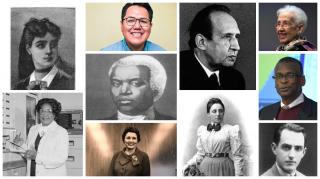
Our adult education students represent a multitude of backgrounds and cultures, yet they may not feel these are reflected in the math classroom or in STEM fields. In this interactive workshop, you will be introduced to some female and black, indigenous, and people of color (BIPOC) mathematicians whose stories and many contributions were all but erased from history. Educating ourselves and our students about these "invisible" STEM pioneers is a step toward what Dr. Gholdy Muhammad calls historically responsive education (instruction responsive to the histories, identities, literacies, and liberation of students). When students see themselves represented in STEM fields, they may be better able to see themselves succeeding at math.
- All adult education math practitioners
This professional development activity/course is designed for:
A first step in creating a more equitable and inclusive math classroom is to learn how students can feel marginalized in the classroom, and how important it is to address the feeling of invisibility. In this workshop, we will first introduce examples of great female and BIPOC mathematicians whose stories and contributions have been largely omitted from mainstream historical accounts. We will then conduct our own real-time online mini-explorations to find other examples of mathematicians to share with each other during the session. Lastly, we will listen to one teacher share her experience of introducing mathematicians of various cultures into her AE classroom and discuss how integrating similar explorations can help develop a culturally responsive math classroom.
Please note: About one week before the event, registrants will receive a separate email from sherry_soares@terc.edu from the SABES Math Team at TERC with instructions on how to access the Zoom session.
- Value the importance of making students feel “visible”
- Provide inspiring examples of female and BIPOC mathematicians whose STEM contributions have been overlooked
- Explain why it’s important for marginalized students to see themselves represented in STEM
Upon completion of this professional development activity/course, you will be able to:


